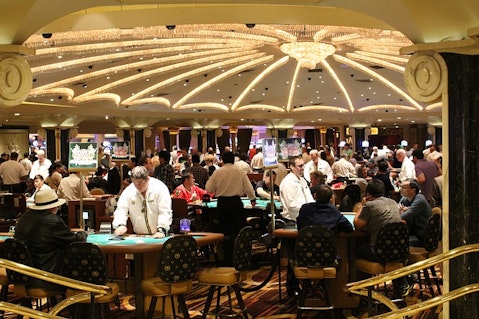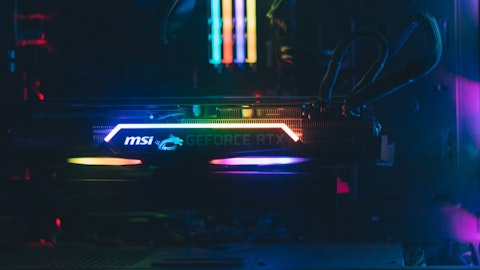Poker might not look much like a spreadsheet or a stock chart. However, it turns out the game and the world of investing might have more in common than they seem. Both involve decisions. Both involve patterns. And both involve people trying to make sense of limited information.
This doesn’t mean that playing poker turns someone into a finance expert. It definitely doesn’t guarantee success. But there’s been a growing idea that some of the thinking used at the poker table might cross over into other parts of life. That could include investing. And it starts with understanding the game itself.

Pixabay/Public Domain
The Current Poker Industry
Poker has been around for hundreds of years now. It’s played in all sorts of places and as it has traveled, different versions of the game have developed. Some are simple. Others are full of complex choices. There’s Texas Hold’em (the most popular version) but also Omaha and even less common ones like Stud games. Each has its own set of rules. Players usually compete by trying to build the best hand or convince others to fold.
Some versions of poker rely more on reading the table. Others are more about math. A few are fast-paced, while others take more patience. That’s part of why poker stays popular. Players can find the version that fits their style. Modern casinos have grown and evolved to provide players with a lot of other choices. When playing at a real money casino, people do some research on the different games. This means that they can find the game they enjoy best – with the right level of strategy.
There are also a lot of differences between online poker and the way that it is played in-person (and some huge similarities, too).
Poker and Patterns
Poker is a game of observation. Players look for clues. They try to figure out what others are holding based on small signs, based on what they’ve done before, or how they are betting. These little moments build up into bigger guesses. It is a skill for certain players.
That’s where the connection to investing starts to appear. Investors look at charts and data. They notice trends. They study behaviour in the markets. It’s rarely about knowing something with 100% certainty, as it’s more about thinking in probabilities and making a move based on what’s most likely. Predicting the movement in the markets is a huge part of things.
In both poker and investing, there’s never total information. Players don’t see every card. Investors don’t know exactly what the market will do. So decisions are based on what’s known and what can be guessed. This teaches players to stay sharp and think logically.
Focus and Decision-Making
Poker also forces players to stay focused. In a single hand, there could be multiple choices for how to play it. Each one has consequences. Players learn to consider different outcomes before acting. They may weigh how much is at stake against what they think might happen next.
That kind of thinking shows up in investing too. Buying shares or choosing funds often involves comparing options and staying calm even when the numbers start to move. Investors who rush in or react too quickly sometimes regret it later. In the same way, poker players who don’t think things through may find themselves out of chips fast.
This doesn’t mean poker is a shortcut to being a better investor. But it can build habits. People who practice thinking ahead in poker may apply the same approach when looking at money decisions.
Adapting to New Information
Another part of poker that overlaps with investing is the need to adjust. A poker hand can change quickly. One card on the river can flip the odds. A player who seemed strong might suddenly show weakness. Good players spot these changes and react without panicking. Texas Holdem can totally change thanks to the way the game is structured. The community cards are revealed gradually.
In markets, similar things happen. A bit of news like AI stocks that might be worth exploring, a change in the economy, or even public opinion can shift what people think a stock is worth. Investors who stay flexible tend to have an easier time adjusting when things change. Poker teaches this idea naturally—what worked one hand may not work the next.
Conclusion
Poker and investing are different in many ways (of course), but the kind of thinking they encourage can feel very similar. That could mean guessing the next bet from an opponent or guessing the next market move, both require attention to detail and a cool head.
For those who already enjoy the game, it might be interesting to think about the skills they’re using. Breaking down choices and thinking in an analytical way…these are all tools that apply to more than just cards.





